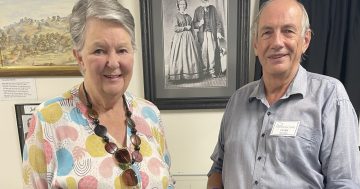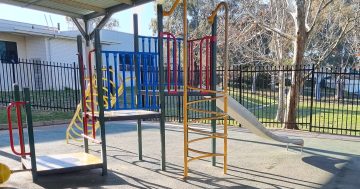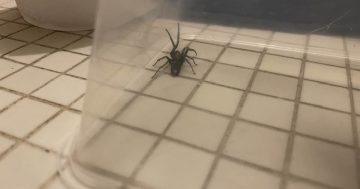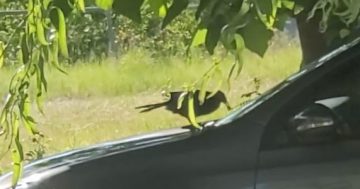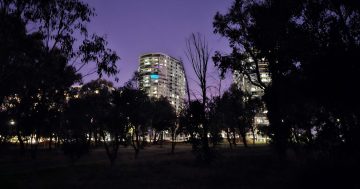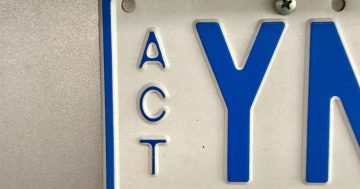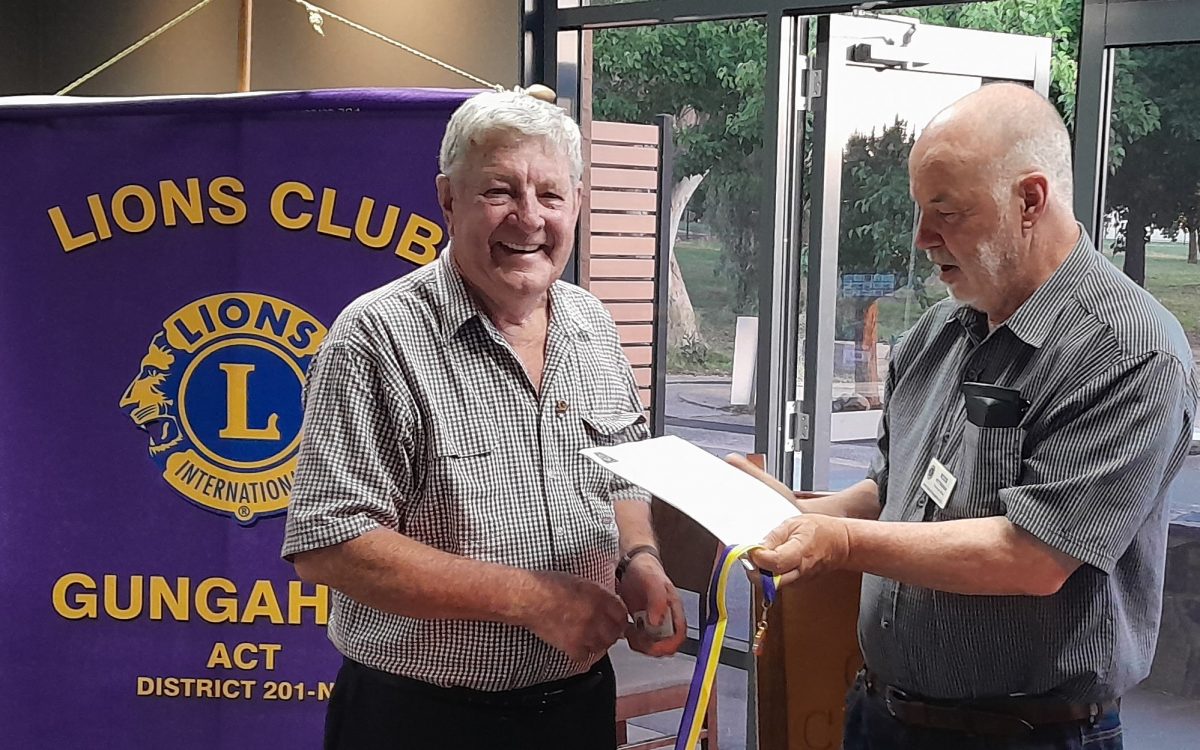
Gungahlin Lions Club president Ross Pettersson (right) presents Peter Sillis with a medal and letter in recognition of his 50 years of service. Photo: Supplied.
The year was 1973.
Construction of the Sydney Opera House had finally ended. Gough Whitlam began his first full calendar year in office. And Peter Sillis, then 22, joined his local Lions club.
It may not sound like much in comparison, even by Peter’s own admission: “It’s just that you’re a member of the Lions Club and you’re doing your job.”
But in 2023, his tenure exceeded Whitlam’s parliamentary career (26 years) and the time it took to build the Opera House (14 years) – combined.
“Oh, no, no, no, no. I’ll continue on as a member of the Lions,” he said when asked if he had any plans to eventually step away.
“I’ve never, ever thought of giving it away. Never entered my mind.”
Over the years Peter served various board positions, including as president of Belconnen Lions Club, and as Lions zone chairman and region chairman.
His 50-year commitment was recognised this year by Lions peak body, Lions Clubs International, which presented him with a medal and letter.
Peter’s journey as a Lions volunteer began five decades ago when he caught wind of a plan to form a local chapter in Bungendore.
“And all my mates wanted to join too,” he said, despite most of the others floating the idea being men around his father’s age.
Peter and about 20 others wrote the club charter the same year and became members of the freshly minted Bungendore Lions Club.
Now aged 71, Peter hasn’t stopped since. “It’s just become a way of life,” he said.
“I’ve always enjoyed being in the Lions club. I’ve enjoyed working for the community.
“And there’s also the social side of it. You make very good friends and those friends are for life.”
Peter said the focus back in his Bungendore Lions days was simply “looking after a lot of the oldies around the place”.
“A heap of us would go out bush, chop down a load of wood, cut it all up, and then distribute that around [for wood-fired stoves and ovens],” he said.
“We also raised money for community projects but it was more about looking after the people of the town, mowing grass and things like that.”
Peter recalled manning many a fundraising stall in Canberra, selling everything from coffee and ice-creams to pork spare ribs and steak sandwiches.
But he said there were also tender moments, including providing a women in Tarago with a hearing dog [for the deaf or hard of hearing].
“In this particular case, this woman had a very young baby. So if the baby cries, the dog comes and gets you. If someone knocks on the door, the dog will come and get you,” he said.
“And after we placed that dog with them, they came back along to a meeting and she cried, the poor woman. She said ‘since I’ve had that dog, I’m now getting a decent night’s sleep’.
“When she was telling us, she was sort of teary-eyed and I think there were quite a few people at the meeting feeling a bit the same … it makes it worthwhile to see the results.”
Although Lions clubs serve their local communities first, they also form part of a global network of more than 48,000 clubs across more than 200 countries and areas.
For instance, Peter used to go door-to-door to Canberra optometrists, collecting up to 700 pairs of used glasses to send to people in developing countries.
But he said of the global cooperative projects he had participated in, the Lions youth exchange program had been one of the most fulfilling.
“Some of the kids will come to your meeting and they’re a bit like, ‘Oh, yeah, um, well, I’d like to, um, yeah, go overseas’.
“When they come back from their trip, we invite them back to the meeting and they’re a totally different person.
“They’ve got more confidence. They’ll speak beautifully. You can see the change in those people.”
Peter made three simple points for anyone considering joining their local Lions club: “It’s rewarding. You meet good people. You make good friends.”
Original Article published by Travis Radford on Riotact.





